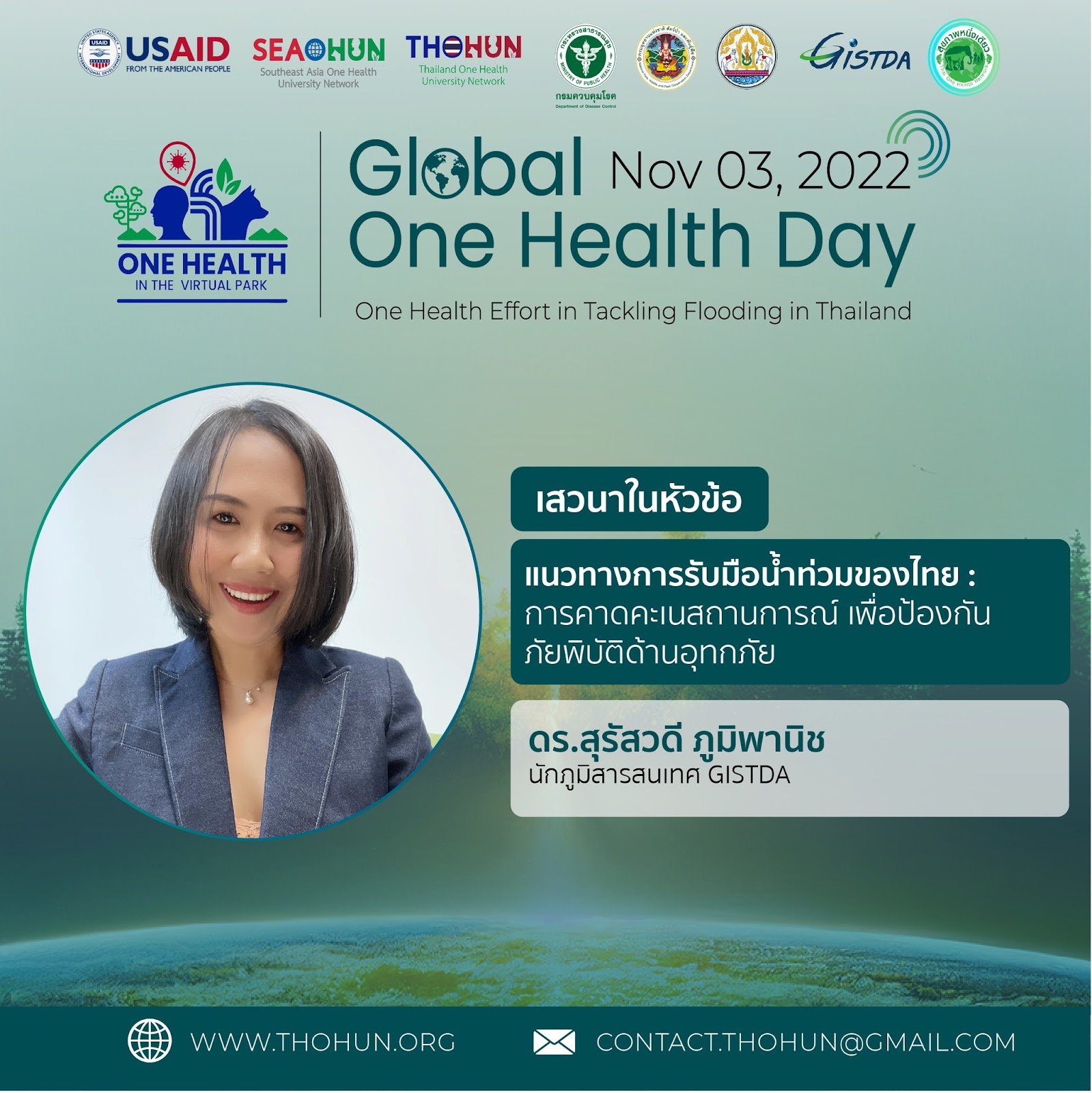One Health in the (virtual) Park
We all know the importance of community engagement, but is there any better way to raise awareness about One Health than by getting scientists and experts into the streets for open dialogue? That’s exactly the approach the Thailand One Health University Network (THOHUN) has been experimenting with through their creative One Health in the Park events. One Health in the Park was initiated in 2021 to advocate for fact-based risk communication related to One Health issues and community actions. Though the event has been hosted in a “virtual” park due to ongoing COVID-19 precautions, this year THOHUN reached over 150 people (>1,100 through the live stream) on the 7th inaugural One Health Day (November 3, 2022).
During their One Health Day event, THOHUN showcased One Health efforts between academic institutions and governmental sectors to raise awareness on the adverse effects of climate change on human, animal and environmental health. Experts from across disciplines came together to share perspectives on innovative flood response, including smart use of technology to to predict, manage, and monitor natural disasters.
This event was organized by THOHUN in collaboration with the Thai Coordinating Unit for One Health in the Ministry of Public Health. THOHUN invited subject-matter specialists from the Ministry of Public Health, Mahidol University, Kasetsart University, Geo-Informatics and Space Technology Development Agency (GISTDA), and the Thai Hydrologist Association to advocate and share facts regarding climate change and flooding in Thailand and other countries, as well as the flooding prevention system in Thailand.
“One Health in the Virtual Park” was live streamed to THOHUN’s Facebook page with the title “To Celebrate One Health Day: One Health Effort in Tackling Climate Change and Flooding in Thailand”. The live stream illustrated how climate change affects human, animal, environmental health in Thailand. Rising temperatures in Thailand have been causing increases in illnesses, such as heat stress, heat stroke, and epilepsy, affecting children, the elderly, and outdoor workers during Thailand's summer months. One speaker mentioned that temperature increases in Thailand cause more evaporated sea water, more water clouds, and more rainfall intensity. There is the potential for severe flooding if effective water management strategies are not in place. In Thailand, the Geo-Informatics and Space Technology Development Agency, or GISTDA, is an agency responsible for integrating knowledge and technology of remote sensing, geographic information systems, and global navigation satellite systems to forecast the situation and help prevent flood disasters. In Thailand there are water management guidelines such as the flood warning method, which is used to inform those living in high flood-risk areas, as well as methods to route and store water. Water traffic management and tools are also used for downstream water to reduce the peak water and other important tools involve the adoption of space technologies for prediction of weather and water situations.
During the event, 50 questions and comments were asked and answered by the experts. The live stream recording is archived at https://fb.watch/gIqTmrythn/ and key contents will be summarized for targeted communications through THOHUN webpage and Facebook.

